Featured
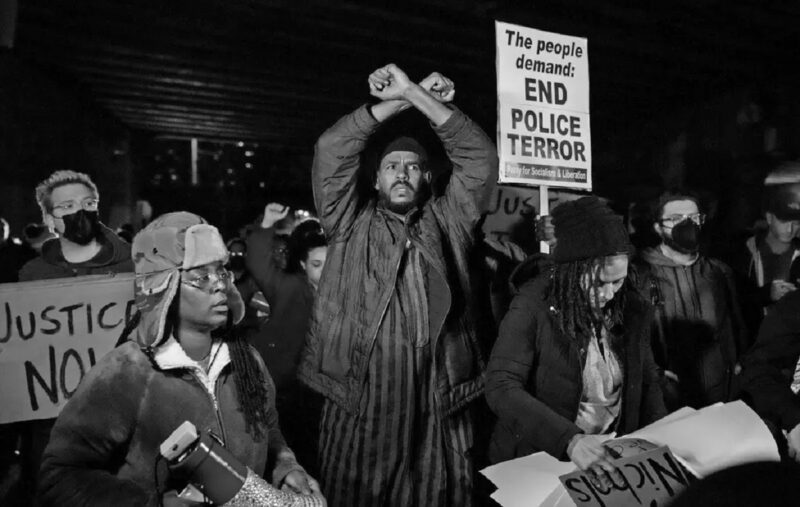 Violent History Echoes in the Killing of Tyre Nichols. By Emil Yetlin / NYT
Violent History Echoes in the Killing of Tyre Nichols. By Emil Yetlin / NYT
Protesters blocking traffic on Friday night in Memphis after a video of the police killing of Tyre Nichols was released.Credit…Desiree Rios/The New York Times
Many cities in the United States could trace similar repetitive patterns of policing that torments and kills people who aren’t considered white, all the way back to the origin of law enforcement in this country. It is a history rooted in slave patrols and militias designed to protect white people’s lives and livelihoods from rebellion among enslaved Black people. But in Memphis the grief and oppressiveness resulting from those systemic patterns run especially deep — lingering and reverberating, like the rap, soul, blues and rock ’n’ roll music this city has given the world. Read more
Related: Why Memphis Is Different. By Juliette Kayyem / The Atlantic
Related: Tyre Nichols’s Death Is America’s Shame. By Charles M. Blow / NYT
Political / Social
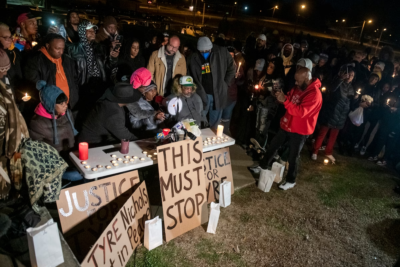 The police killing in Memphis is a reminder we must change policing. By Perry Bacon Jr. / Wash Post
The police killing in Memphis is a reminder we must change policing. By Perry Bacon Jr. / Wash Post
America desperately needs to rethink its approach to policing — it’s a shame that we started that rethinking in 2020 but then stopped because of politics.
More than 1,000 Americans are killed by police each year, far more than the number of people executed through the death penalty (around 20), the official process by which the government can kill someone in the United States. That process, unlike a police killing, allows numerous opportunities for appeal. The majority of those killed by the police are White, since about 60 percent of Americans overall are. But because policing often targets those who are poor or who are considered by our society to be nuisances, Black people are much more likely than those from other ethnic and racial groups to be killed by the police. Read more
Related: Tyre Nichols Beating Opens a Complex Conversation on Race and Policing. By Clyde McGrady / NYT
 DeSantis’s Long War on Black Political Power. By Jonathan Chait / NY Magazine
DeSantis’s Long War on Black Political Power. By Jonathan Chait / NY Magazine
Ron DeSantis has continued his war on critical race theory by rejecting Advanced Placement African American history for supposedly advancing the tenets of this forbidden strain of thought.
The irony is that critical race theory happens to be an excellent intellectual framework for understanding DeSantis himself. The theory has real value as a critique and provides insight into how a figure like DeSantis has carried out a systematic attack on African American political power without relying on bygone tools like de facto segregation. What I am arguing is that DeSantis’s political ambitions have entailed disempowering Black citizens in his state in a calculated fashion. Most of these events took place before he had catapulted himself to the center of the national debate, and they received far less attention than his more recent culture-war thrusts. But they are at least as significant, if not more so. Read more
Related: Politicizing Black Lives in Florida. By Linda Wiggins-Chavis / The Progressive Magazine
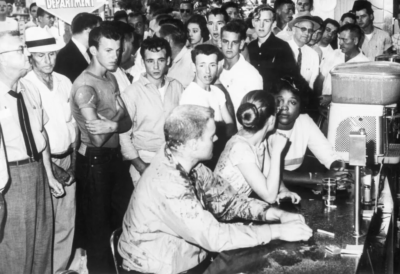 Republican Lawmakers Might Not Be Able to Handle the Truth, But Kids Can. By Margaret McMullan / The Bulwark
Republican Lawmakers Might Not Be Able to Handle the Truth, But Kids Can. By Margaret McMullan / The Bulwark
We owe our children much more than book bans and new restrictions on the teaching of our history. Shown are segregation protesters Professor John R. Salter, Joan Trunpauer, and Annie Moody remain at a sit-in at a lunch counter in Jackson, Mississippi even after Professor Salter was sprayed with condiments and beaten on the back and head by spectators in the crowd.
This month, on her first day in office, Arkansas Governor Sarah Huckabee Sanders issued an executive order banning the teaching of critical race theory in her state’s K-12 public schools. She joined the parade of other mostly Southern Republican lawmakers and governors who have banned teaching CRT in their states’ schools. Read more
Related: Conservatives: “School Choice” Will Punish Public Schools for Wokeness. By David Marques / TNR
 It Came From the Basement. How Nick Fuentes groomed a new generation of racist hate. By Ali Breland / Mother Jones
It Came From the Basement. How Nick Fuentes groomed a new generation of racist hate. By Ali Breland / Mother Jones
Eight months before the white nationalist figure Nicholas J. Fuentes ignited a political firestorm by dining with Kanye West and Donald Trump at Mar-a-Lago, he strode out onstage to a crowd of what he claimed were 1,000 followers, chanting “America First.” Behind a podium, flanked by two American flags and one with that slogan, he hit his standard beats (the nation is in decline, Christ is king) while sprinkling in some extremely troubling riffs, like comparing Vladimir Putin to Hitler—and suggesting the similarity was a “good thing.” Read more
Related: Trump kicks off presidential campaign in New Hampshire, South Carolina. By Mariam Khan / ABC News
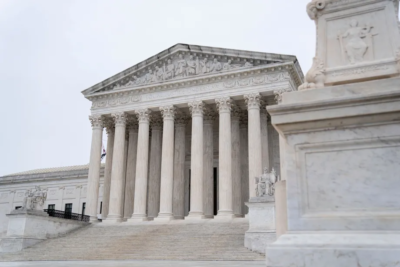 How the Voting Rights Act ended up back at the Supreme Court. By Jonquilyn Hill / Vox
How the Voting Rights Act ended up back at the Supreme Court. By Jonquilyn Hill / Vox
Although we’re months out from any rulings, many voting rights advocates have their eyes on the Supreme Court, which is likely to rule on a few cases this term that could affect the strength of the Voting Rights Act.
On this week’s episode of The Weeds — Vox’s podcast for politics and policy discussions — we hop in the Weeds Time Machine with Ellis and go back to the circumstances that gave us the VRA, and look forward to what the policy could become in the near future. Read more and listen here
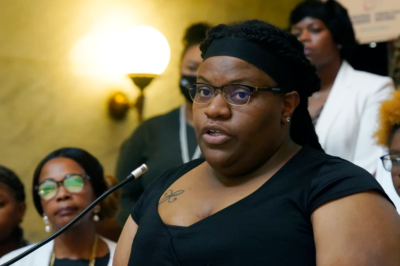 Black maternal deaths and disparities increase in Mississippi. By AP and NBC News
Black maternal deaths and disparities increase in Mississippi. By AP and NBC News
Brittany Lampkin speaks about the Mississippi Black Women’s Roundtable legislative agenda during a news conference at the Capitol in Jackson, Miss. on Thursday
Deaths from pregnancy complications have become more prevalent in Mississippi, and racial disparities in the health of those who give birth have widened in recent years, according to a report released Thursday by the state’s Department of Health. The Mississippi Maternal Mortality Report shows that the maternal mortality rate increased by 8.8% between 2013‐2016 and 2017‐2019, with the latter period being the most recent one analyzed by researchers. Black, non-Hispanic women had a rate four times higher than white, non-Hispanic women. Meanwhile, the rate increased by 25% for Black women while falling 14% among white women. Of the maternal deaths directly related to pregnancy, 87.5% were determined to be preventable. Read more
Ethics / Morality / Religion
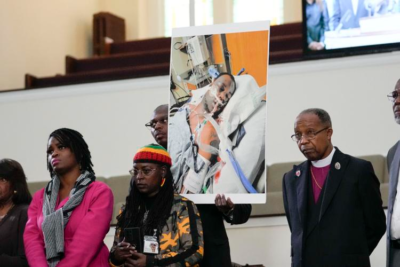 Tyre Nichols police beating video prompts faith leaders to react with grief, goals. By Adelle M. Banks / RNS
Tyre Nichols police beating video prompts faith leaders to react with grief, goals. By Adelle M. Banks / RNS
They expressed grief and prayers for Nichols’ family, as well as called for national and state legislation. Some questioned whether the video of the police beating of Nichols should be watched.
Religious leaders reacted swiftly — with legislative appeals and collective grief — to the release of video footage of police officers beating Tyre Nichols, a Black man who died days after a traffic stop in Memphis, Tennessee. Read more
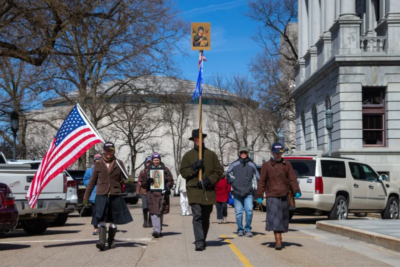 “Christian Nationalism’s Popularity Should Be a Wake Up Call.” By Jared Yates Sexton / Time
“Christian Nationalism’s Popularity Should Be a Wake Up Call.” By Jared Yates Sexton / Time
Pro-Trump Christian nationalist Jericho Marchers march around the Pennsylvania State Capitol in Harrisburg, Pa. after meeting with several Republican state legislators on March 15, 2021
Since reporting from those Trump rallies, I have watched with revulsion as the people I knew and loved lifted a reality television host to the status of messiah. It is yet another component of Christianity, the idea of a “divine agent” who becomes a tool of the almighty and executor of his will on Earth. There have been many, including Constantine in Rome, who assumed this mantle while promising to protect or expand Christendom and used its influence to wield enormous power. Dictators, demagogues, and tyrants have long anchored their status to this concept, and in an environment like ours, the time is ripe for anyone willing and shameless enough to grab the mantle and use it. Read more
Related: Are evangelicals breaking up with Trump? Don’t get your hopes up. By Nathaniel Manderson / Salon
 Survey: Hispanic Protestant Churches Are Young, First Gen, and Growing. By Aaron Earls / Christianity Today
Survey: Hispanic Protestant Churches Are Young, First Gen, and Growing. By Aaron Earls / Christianity Today
As the Latino population climbs in the US, researchers say their congregations excel at fostering community and engaging new people.
The study reveals a picture of Hispanic churches that are newer, younger, and more effectively evangelistic than the average US Protestant church. Most Hispanic Protestant churches (54%) have been established since 2000, including 32 percent founded in 2010 or later. Fewer than 1 in 10 (9%) trace their history prior to 1950. Read more
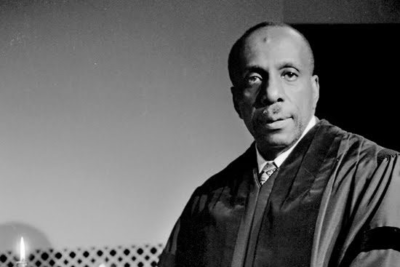 Howard Thurman’s Spiritual and Intellectual Contributions to the Civil Rights Movement. By AAIHS Editors
Howard Thurman’s Spiritual and Intellectual Contributions to the Civil Rights Movement. By AAIHS Editors
Gregory Ellison’s recently published edited volume on Howard Thurman explores the varied roles that the theologian, mystic, professor, and preacher played in the lives of scores of civil rights activists as Dean of the Chapel at Howard University. Further, the work explores Thurman’s impact as the pastor of the first interracial church in the U.S. and as the first Black Dean of the Chapel at Boston University, where he had a profound influence on Martin Luther King, Jr. Read more
Historical / Cultural
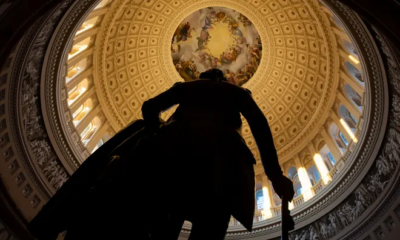 Myth America review: superb group history of the lies that built a nation. By Charles Kaiser / The Guardian
Myth America review: superb group history of the lies that built a nation. By Charles Kaiser / The Guardian
Julian Zelizer and Kevin Kruse marshal a fine array of historians for a bestselling assault on rightwing nonsense
This collection of essays by 21 exceptional historians has an ambitious mission: the re-education of Americans assaulted by lies more systematically than any previous generation. The editors are two Princeton history professors, Kevin M Kruse and Julian E Zelizer. They begin with a concise history of how we reached this zenith of misinformation. The assault on truth by a rightwing “media ecosystem” began with Rupert Murdoch’s invention of Fox News, augmented in recent years by even more fantasy-based cable networks like Newsmax and One America News. Read more
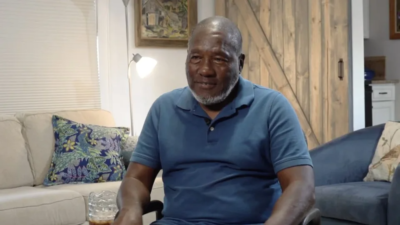 FIU professor’s ‘Teach the Truth’ tours defy DeSantis law on black history lessons. By The Grio Staff and Yahoo
FIU professor’s ‘Teach the Truth’ tours defy DeSantis law on black history lessons. By The Grio Staff and Yahoo
A Black professor emeritus at Florida International University is defying Gov. Ron DeSantis’ prohibition on Advanced Placement African American studies by spotlighting the sites of some of the worst racial atrocities in the state’s history.
Marvin Dunn, 82, Morehouse graduate, and one of eight plaintiffs in a complaint concerning DeSantis’ Stop Wrongs to Our Kids and Employees Act, has been leading high school students on his “Teach the Truth” tour since Florida’s Republican governor began his mission to devalue Black studies. A Miami charity Dunn runs to preserve Black history sponsors the tours to places where consequential historical events occurred. The professor intends to take another group during the upcoming legislative session in the spring. Read more
 The Museum Built on Native American Burial Mounds. By Logan Jaffe / Propublica
The Museum Built on Native American Burial Mounds. By Logan Jaffe / Propublica
For decades, Dickson Mounds Museum in Illinois displayed the open graves of more than 200 Indigenous people. Thirty years after a federal law required museums to begin returning remains, the statewide museum system still holds thousands.
In the 1920s, a chiropractor named Don Dickson dug open the mound, eventually exposing the remains of hundreds of Native Americans. He left them in place, and his family turned the excavation into a roadside attraction they called Dickson Mounds. They charged visitors 50 cents for admission. In 1945, the state of Illinois purchased the site and later expanded it into a museum. Read more
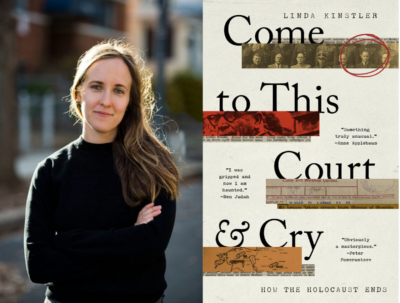 A history of the Holocaust that probes the use and abuse of memory. By Judy Batalion / Wash Post
A history of the Holocaust that probes the use and abuse of memory. By Judy Batalion / Wash Post
In ‘Come to This Court and Cry,’ Linda Kinstler examines how stories of the Holocaust are passed down and altered
In recent years, much has been written about intergenerational trauma, especially around the “emotional legacy” of the Holocaust. Mostly these works feature the offspring of Jewish survivors grappling with the anxiety that trickles through families; some stem from the descendants of perpetrators, usually exploring inherited guilt. Read more
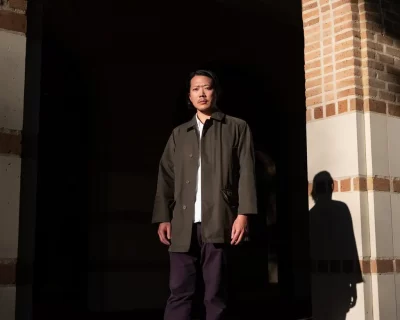 The Forgotten History of Chinese Railroad Workers Rises From the Texas Dust. By Zachary Small / NYT
The Forgotten History of Chinese Railroad Workers Rises From the Texas Dust. By Zachary Small / NYT
In a creative departure, the artist Kenneth Tam spent the last year creating sculptures that honor the lives of Chinese laborers in Texas who helped build the country’s railroad system. Shown is The artist Kenneth Tam’s latest project centers on the little-known history of the Chinese migrant laborers who helped build the American railroads in the 19th century.Credit…
What remains of the Chinese immigrants who built the Southern Pacific Railroad through Seminole Canyon in the 1880s are the objects they left behind — opium pipes, rice bowls, and imperial coins buried here in the scrublands, three hours east of the desert town of Marfa. The laborers, who after brutal hours toiling in the rattlesnake-infested lands would sleep in tents near the tracks, left little of their own writing. (Their white counterparts lodged inside the train cars.) Read more
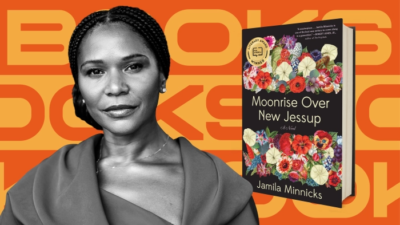 Jamila Minnicks’ debut novel raises complex questions about the costs of integration. By Lawrence O’Neal / Andscape
Jamila Minnicks’ debut novel raises complex questions about the costs of integration. By Lawrence O’Neal / Andscape
‘Moonrise Over New Jessup’ asks just who is living across the tracks from whom? Jamila Minnicks is the 2021 winner of the PEN/Bellwether Prize for Socially Engaged Fiction.
On publication day for Moonrise Over New Jessup, first-time novelist Jamila Minnicks felt guided by history. She felt the need to name things — like praying aunties, ancestral connections, and Black communities where making a way out of no way is a habit and a practice — and to call them into the space where she was holding her inaugural book talk. Read more
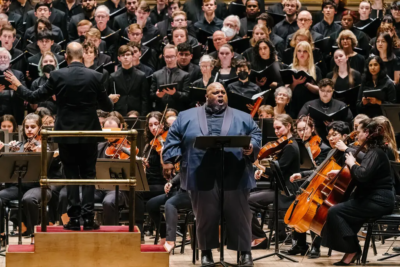 He Quit Singing Because of Body Shaming. Now He’s Making a Comeback. By Javier C. Hernandez / NYT
He Quit Singing Because of Body Shaming. Now He’s Making a Comeback. By Javier C. Hernandez / NYT
The tenor Limmie Pulliam, who made his debut at Carnegie Hall on Friday, hopes to break barriers for larger artists.
As a rising young tenor in the 1990s, Limmie Pulliam dreamed of a career that would take him to the world’s top stages. But Pulliam, who has struggled with excessive weight for much of his life, quit singing in his early 20s because of concerns about body shaming in the music industry, finding work instead as a debt collector and a security guard. Read more
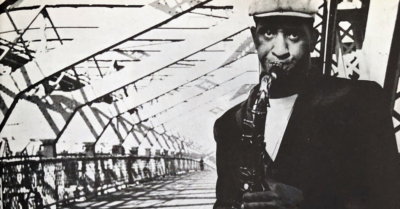 The Sound of Sonny. By Ben Ratliff / NYT
The Sound of Sonny. By Ben Ratliff / NYT
Aidan Levy has written a revealing, comprehensive biography of the improviser-hero Sonny Rollins. SAXOPHONE COLOSSUS: The Life and Music of Sonny Rollins, by Aidan Levy
Two images stay in the mind after finishing Aidan Levy’s long biography of the jazz musician Sonny Rollins, with a set of online endnotes half as long again. “Saxophone Colossus” mentions nearly every recording Rollins made, and nearly every concert Rollins ever played for which there is available information (or so it seems). Read more
Sports
 Student. Athlete. Mogul? By Bruce Schoenfeld / NYT
Student. Athlete. Mogul? By Bruce Schoenfeld / NYT
Now that college players are allowed to cut sponsorship deals, some of them are raking in the money — but at what cost to the rest?
For more than a century, or as long as the N.C.A.A. has presided over college sports, athletes had no legal way to earn anything more tangible from their achievements than plaques and trophies. The rules were as clear as they were strict: Players couldn’t receive any benefits linked to their participation in a sport. That changed on July 1, 2021. Following a Supreme Court decision against the N.C.A.A., the organization ended nearly all its restrictions on what athletes could earn from the use of their names, images and likenesses, an amorphous category that has become known as NIL. Overnight, those athletes could make deals with companies and endorse their products. Read more
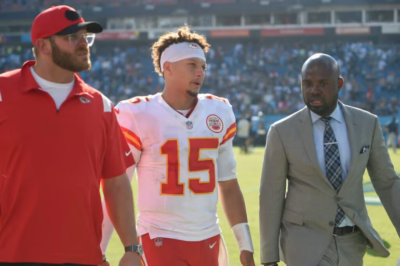 Inside Patrick Mahomes’ ability to recover quickly: ‘He’s wired differently.’ By Rustin Dodd and Nate Talor / The Atheletic
Inside Patrick Mahomes’ ability to recover quickly: ‘He’s wired differently.’ By Rustin Dodd and Nate Talor / The Atheletic
In five seasons as the Chiefs’ starting quarterback, Mahomes has proven to possess extraordinarily rare abilities on the football field. But perhaps his most overlooked talent — one that dates back to his high school days in Whitehouse, Texas — is his ability to come back from and excel through injuries. Former coaches credit his ability to tolerate pain. For Mahomes, the preparation continues this week and the challenge is simple: He will try to find a way to feel healthy enough Sunday to execute the Chiefs’ game plan. Read more
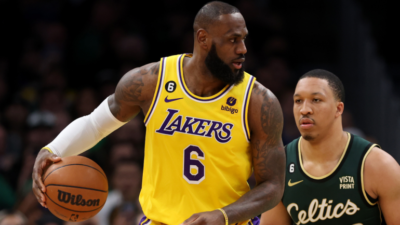 LeBron James scoring tracker: Lakers star less than 120 points away from record, on pace to break it Feb. 4. By Brad Botkin / CBS
LeBron James scoring tracker: Lakers star less than 120 points away from record, on pace to break it Feb. 4. By Brad Botkin / CBS
LeBron James is steaming toward Kareem Abdul-Jabbar’s all-time scoring record. With another 41 points on Saturday, albeit in a losing effort at Boston, James is now legitimately within three or four games of the NBA record.
He would have to average 39 points to make it happen in three games, which isn’t unrealistic. James has scored 46 and 41 in two of this last three games. For the season, James is now averaging 30.2 points per game. If he maintains that pace, he would need four more games to pass Kareem. If he doesn’t sit out any game between now and then, that puts him in line to do it on Feb. 4 at New Orleans, the final game of a five-game road trip. Read more
Site Information
Articles appearing in the Digest are archived on our home page. And at the top of this page register your email to receive notification of new editions of Race Inquiry Digest.
Click here for earlier Digests. The site is searchable by name or topic. See “search” at the top of this page.
About Race Inquiry and Race Inquiry Digest. The Digest is published on Mondays and Thursdays.
Use the customized buttons below to share the Digest in an email, or post to your Facebook, Linkedin or Twitter accounts.